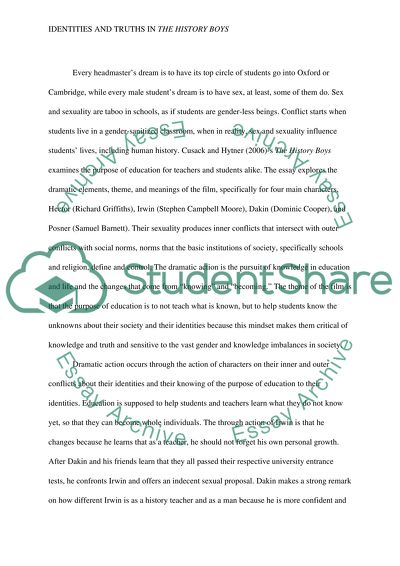Cite this document
(“The analytical essay of the movie The History Boys Assignment”, n.d.)
The analytical essay of the movie The History Boys Assignment. Retrieved from https://studentshare.org/visual-arts-film-studies/1488259-the-analytical-essay-of-the-movie-the-history-boys
The analytical essay of the movie The History Boys Assignment. Retrieved from https://studentshare.org/visual-arts-film-studies/1488259-the-analytical-essay-of-the-movie-the-history-boys
(The Analytical Essay of the Movie The History Boys Assignment)
The Analytical Essay of the Movie The History Boys Assignment. https://studentshare.org/visual-arts-film-studies/1488259-the-analytical-essay-of-the-movie-the-history-boys.
The Analytical Essay of the Movie The History Boys Assignment. https://studentshare.org/visual-arts-film-studies/1488259-the-analytical-essay-of-the-movie-the-history-boys.
“The Analytical Essay of the Movie The History Boys Assignment”, n.d. https://studentshare.org/visual-arts-film-studies/1488259-the-analytical-essay-of-the-movie-the-history-boys.


